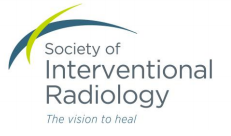Noticias


- Título: Interventional Radiology Therapy With Y90 Offers Hope for Colorectal Cancer Patients
- Fecha: 03-03-2015
Guest blog post for Interventional Oncology 360 by Ryan M. Hickey, MD, interventional radiologist and assistant professor in radiology at Northwestern University, Chicago, IL
In the United States, colorectal cancer is the third most common cause of cancer death. This is an aggressive disease and about half of all patients will eventually develop colorectal cancer liver metastases. Most patients will eventually stop responding to chemotherapy and are not eligible for surgery, at which point median survival time is approximately 4 to 5 months.
Given the limited options, interventional radiologists have been working on innovative, image-guided treatments that can give these patients the precious additional time they want. One such option that we are actively researching is the role of radioembolization, a treatment in which microscopic, radioactive beads are injected into the blood vessels of the tumors and emit radiation from within the tumors.
Radioembolization with yttrium-90 (Y90) radioactive microspheres is an accepted treatment for colorectal liver metastases that have stopped responding to chemotherapy. There are two types of microspheres, resin and glass. Because resin microspheres have FDA approval for the treatment of liver metastases, the majority of published literature reports on outcomes with resin microspheres. Nonetheless, a substantial number of patients undergo radioembolization with glass microspheres because of differences in the characteristics of the microspheres and their delivery that certain treating physicians believe serve their patients better. In order to characterize the safety and efficacy of radioembolization with glass microspheres, we conducted a collaborative study with eight major medical centers that included more than 500 patients. This the largest study of glass microspheres in patients with metastatic colorectal cancer.
Our study indicated that the median survival time after radioembolization with glass microspheres was 10.6 months. It also confirmed that the treatment is indeed safe with few and mild side effects. Our findings are very consistent with previously published, although smaller, studies of radioembolization with either glass or resin microspheres, reinforcing the promise of an effective therapy for people who otherwise have little to no treatment options left.
This week our team is presenting results on the effectiveness of radioembolization with glass microspheres and its potential benefit to terminally ill patients at the Society of Interventional Radiology’s 40th Annual Scientific Meeting, the world’s largest and most comprehensive interventional radiology educational experience.
This research has important implications for the treatment of an all-too-common cancer. Our study suggests that patients who have stopped responding to available therapies may have a significant and potentially life-prolonging response to radioembolization with glass microspheres.
More comprehensive, prospective studies are certainly necessary, but we are hopeful that the work we have done will ignite further investigation and discussion on the incorporation of an effective, targeted and minimally invasive treatment in the standard treatment paradigms of a very common disease.
“Y-90 radioembolization of hepatic metastases of colorectal cancer using glass microspheres: Survival and safety outcomes from a multicenter review of 531 patients,” R.M. Hickey, R.J. Lewandowski, R. Salem, department of radiology, division of vascular/interventional radiology, Northwestern University, Chicago; T.R. Prudhomme, E. Ehrenwald, Abbott Northwestern Hospital, Minneapolis, Minn.; J.J. Critchfield, department of radiology, Wayne State University, Detroit Medical Center, Mich.; B. Gorodetski, J.H. Geschwind, Interventional Radiology Center, Johns Hopkins Hospital, Baltimore, Md.; R. Shridhar, department of radiation oncology, Moffitt Cancer Center, Tampa, Fla.; A.M. Abbott, department of surgery, gastrointestinal tumor program, Moffitt Cancer Center, Tampa, Fla.; S.B. White, W.S. Rilling, department of radiology, division of vascular/interventional radiology, Medical College of Wisconsin, Milwaukee; S. Kauffmann, department of radiology, Miami Valley Hospital, Dayton, Ohio; S.W. Kwan, S.A. Padia, department of radiology, section of interventional radiology, University of Washington, Seattle. SIR Annual Scientific Meeting, Feb. 28–March 5. This abstract can be found at sirmeeting.org.
- See more at: http://www.interventionaloncology360.com/content/interventional-radiology-therapy-y90-offers-hope-colorectal-cancer-patients#sthash.VAW2Inqh.dpuf
- Fuente: endovascular.es





